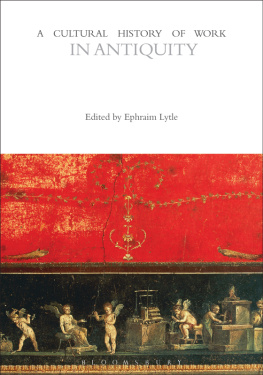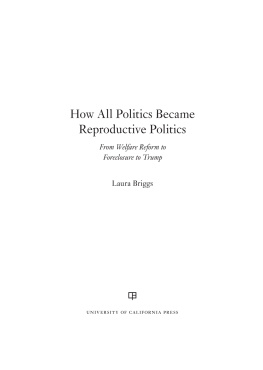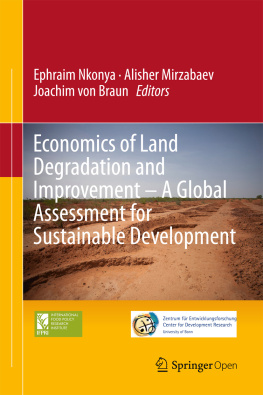Laura Ephraim - Who Speaks for Nature? : On the Politics of Science
Here you can read online Laura Ephraim - Who Speaks for Nature? : On the Politics of Science full text of the book (entire story) in english for free. Download pdf and epub, get meaning, cover and reviews about this ebook. year: 2018, publisher: University of Pennsylvania Press, genre: Politics. Description of the work, (preface) as well as reviews are available. Best literature library LitArk.com created for fans of good reading and offers a wide selection of genres:
Romance novel
Science fiction
Adventure
Detective
Science
History
Home and family
Prose
Art
Politics
Computer
Non-fiction
Religion
Business
Children
Humor
Choose a favorite category and find really read worthwhile books. Enjoy immersion in the world of imagination, feel the emotions of the characters or learn something new for yourself, make an fascinating discovery.

- Book:Who Speaks for Nature? : On the Politics of Science
- Author:
- Publisher:University of Pennsylvania Press
- Genre:
- Year:2018
- Rating:3 / 5
- Favourites:Add to favourites
- Your mark:
- 60
- 1
- 2
- 3
- 4
- 5
Who Speaks for Nature? : On the Politics of Science: summary, description and annotation
We offer to read an annotation, description, summary or preface (depends on what the author of the book "Who Speaks for Nature? : On the Politics of Science" wrote himself). If you haven't found the necessary information about the book — write in the comments, we will try to find it.
Who Speaks for Nature? : On the Politics of Science — read online for free the complete book (whole text) full work
Below is the text of the book, divided by pages. System saving the place of the last page read, allows you to conveniently read the book "Who Speaks for Nature? : On the Politics of Science" online for free, without having to search again every time where you left off. Put a bookmark, and you can go to the page where you finished reading at any time.
Font size:
Interval:
Bookmark:
NATURE?

On the Politics of Science
Laura Ephraim

Copyright 2018 University of Pennsylvania Press
All rights reserved. Except for brief quotations used for purposes of review or scholarly citation, none of this book may be reproduced in any form by any means without written permission from the publisher.
Published by
University of Pennsylvania Press
Philadelphia, Pennsylvania 19104-4112
www.upenn.edu/pennpress
Printed in the United States of America on acid-free paper
10 9 8 7 6 5 4 3 2 1
Library of Congress Cataloging-in-Publication Data
Names: Ephraim, Laura, author.
Title: Who speaks for nature? : on the politics of science / Laura Ephraim.
Description: 1st edition. | Philadelphia : University of Pennsylvania Press, [2018] | Includes bibliographical references and index.
Identifiers: LCCN 2017026854 | ISBN 9780812249811 (hardcover : alk. paper)
Subjects: LCSH: SciencePolitical aspects. | SciencePhilosophy. | Political sciencePhilosophy. | Natural historyPhilosophy. | NaturePolitical aspects.
Classification: LCC Q175.5 .E64 2018 | DDC 303.48/3dc23
LC record available at https://lccn.loc.gov/2017026854

When scientists speak publicly about things they have observed, measured, and analyzed in the lab or the field, their words carry special weight. Unlike more casual observers of the physical milieupatients, mothers, poets, gardeners, laborers, cloud watchersnatural scientists are regarded as authorities when it comes to their objects of study. To acknowledge this much is not to deny that the authority of science and scientists can be challengedfor example, when citizens from Woburn, Massachusetts, created a leukemia map to refute experts repeated claims that the toxic waste in their community was benign, or when members of ACT UP chanted Were here to show defiance for what Harvard calls good science while protesting the protocols and priorities of AIDS researchers. If the question that frames this book, Who Speaks for Nature?, is seldom asked directly in these struggles, or in academic and political debates more generally, perhaps this is because the answer is obvious: scientists do.
But if scientists capacity to speak authoritatively on behalf of the material environment seems almost self-evident, it is far less apparent how this authority comes to be established, sustained, and eroded, and under what conditions it is successfully vested in or wrested from the natural sciences. From where do scientific experts derive their enduringthough contestablecapacity to give voice to nature? How do communities come to be configured around the acknowledgment that (some) political actors (and not others) speak for the elements and energies of the material milieu and the flesh of human and nonhuman bodies? What practices on the parts of scientists and nonscientists establish and erode the boundaries circumscribing who counts as a legitimate spokesperson for which things, and whose speech is heard as idle chatter, mere opinion, or noise? This book sets out to dispel the aura of inevitability surrounding the authority of the natural sciences by interrogating the political origins, sources, and limits of that authority. In these pages, I elaborate a novel account of the political conditions of possibility that render certain natural phenomena speakable and that decide who may and may not speak on their behalf. By uncovering the political constitution of scientific authority, I aim to foster a deeper understanding of the contingency and the resiliency of that authority and, thereby, to inform and inspire ongoing movements to bolster, contest, or reshape it for democratic and ecological ends.
One obstacle to posing the science question in political theory in terms of the political constitution of scientific authority is the widespread assumption that scientistsunlike most political actorsprimarily derive their authority from the truth of the things they say.
Yet the authority of the natural sciences has largely survived these debunking gestures, suggesting that this authority cannot be adequately explained by epistemological considerations alone. Indeed, many of the very same scholars who embrace the post-positivist view that every scientific fact comes laden with values are also convinced of the importance of heeding and amplifying the voices of scientists when it comes to climate change. These positions only seem incongruous with one another if we assume that the authority of science stands or falls on the strength of its validity. By moving beyond a narrow epistemological framing of this authority, we can better understand why the belief that all science is socially constructed usually does notand should notmove believers to remove the Darwin fish decals (ubiquitous emblems of deference to science) from their fuel-efficient cars. Neither the healthy skepticism of post-positivism nor the cynical skepticism of climate denial has succeeded in eradicating natural sciences authority, because this authority also draws from nonepistemological wells. These are the wells that interest me in this book.
Accordingly, I largely leave to one side questions about whether and how scientists know what they (claim to) know. These are important and engrossing questions, but they already take up too much oxygen in discussions of science and politics, and their prevalence unfortunately tends to incline even astute questioners to treat politics as little more than an invalidating dalliance. In place of the familiar epistemological questions, I open neglected lines of inquiry into whether and how political activity serves as an enabling condition for scientists to do what they do when they speak for nature. Beyond the methodological rigor of scientists research, what habits, practices, disciplines, or comportmentson the part of those who do and do not have keys to the labrender some efforts to give voice to nature more felicitous or legible than others? Though the question of whether scientists are speaking the truth is hardly irrelevant from either a political or an epistemological perspective, it would be nave to think that scientists capacity to serve in the crucial role of truth-teller depends solely on their access to truth.
Over the course of the next four chapters, I make the case that natural scientists owe their prevalent role as spokespersons for nature to what I will call the politics of world-building. By world-building politics, I mean the embodied practices through which scientists and citizens struggle with and against each other to engage the material reality of their environments and bodies and compose a common world from these heterogeneous elements. World-building practices instantiate relations of proximity, affinity, resemblance, or repulsion among disparate human and nonhuman beings, excluding some from the assemblages that secure the power, prestige, and visibility of others. Seen within this worldly frame, the natural sciences are political because they are among the most important sites for inheriting, augmenting, dismantling, and rebuilding the material relationships that bind human and nonhuman bodies together and enable some bodies to speak for others. From this perspective, the political importance of the natural sciences is founded not only on what scientists know, but also on what theyand we
Font size:
Interval:
Bookmark:
Similar books «Who Speaks for Nature? : On the Politics of Science»
Look at similar books to Who Speaks for Nature? : On the Politics of Science. We have selected literature similar in name and meaning in the hope of providing readers with more options to find new, interesting, not yet read works.
Discussion, reviews of the book Who Speaks for Nature? : On the Politics of Science and just readers' own opinions. Leave your comments, write what you think about the work, its meaning or the main characters. Specify what exactly you liked and what you didn't like, and why you think so.










